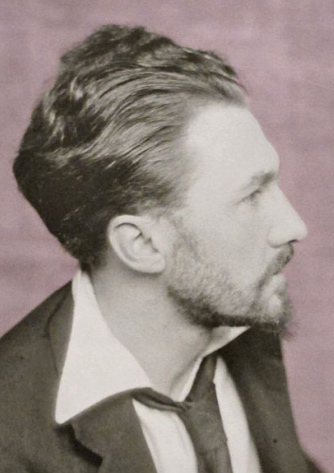
With the following letter Ezra Pound sent several poems to Harriet Monroe, editor of Poetry: A Magazine in Verse. She rejected them all, including “Vergier,” “Mr. Styrax,” and “Ritratto,” deeming them “unpublishable” as they were too “frank.” Even so, Monroe was a a supporter of Pound; she served as the principal ambassador of the Imagist movement in America. After describing his later projects Pound goes on to stipulate sets forth a theory of sound: that poetry should render language musical, the words following an individual cadence over any metric form.
To Harriet Monroe
London, 1 January 1918
Dear H.M.,
I enclose my harvest. I have made two series of it, one mediaeval. Before you blaspheme over it, do read the Canzone aloud. I have completely re-written, or nearly finished completely rewriting all Arnaut Daniel. I use this translation among the adaptations of this series because it needs no explanatory notes, as do some of the other canzoni. The best one of the lot can perhaps appear only in the volume, where the notes will be in place.
There has been no attention to sound for so long, save from Lindsay. And he is interesting only as Kipling’s was. Believe me one can write it by the hour as fast as one scribbles. However you never will believe me in this matter, so passons [sic]…
I liked your comment p. 89, Nov no. Naturally pleased to see the folk song idea smacked again. Even an eminent London musical critic has recently got on a platform and said “all folk songs have authors and the authors are individuals.” The blessing of the “folk” song is solely in that the “folk” forget and leave out things. It is a fading and attrition not a creative process…
I shall probably do some more work on sound. Anything really made to speak or sing is bound to lose on the page, unless the reader have some sense of sound. This I can not help. Simply the vers libre public are probably by now as stone blind to the vocal or oral properties of a poem as the “sonnet” public was five or seven years ago to the actual language, i.e. all that has made my stuff interesting since “Contemporania.” This is simply to fore-say that the Canzon will set a lot of people grumbling. And that I don’t care a damn. Not any more than I cared about the objections to vers libre. ————
I am profoundly glad my earlier versions of Arnaut weren’t published. It gives me a chance to do something with it.
Knopf writes that he sold 323 copies of Lustra in Oct. and 9 in Nov., and that nobody had offered any assistance. Sandburg has of course pretty well covered the ground, still perhaps there might be a brief notice of the existence of the American edition. It contains, as you have doubtless seen, earlier stuff than that which has appeared in Poetry and is fairly good value in pages. The note of acknowledgement is just before the Cantos.————
Notes: The Daniel translations from the Provençal were never published during Pound’s lifetime.
From The Selected Letters of Ezra Pound, 1907-1941. New York: New Directions (1950), pp. 126-127.

